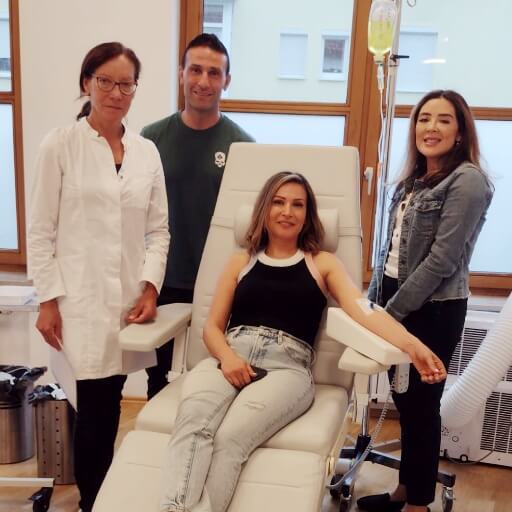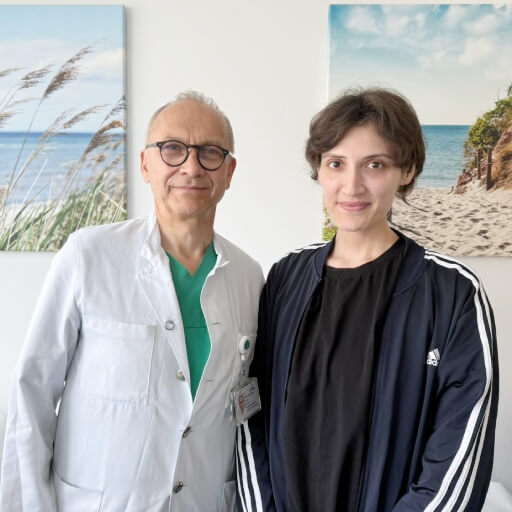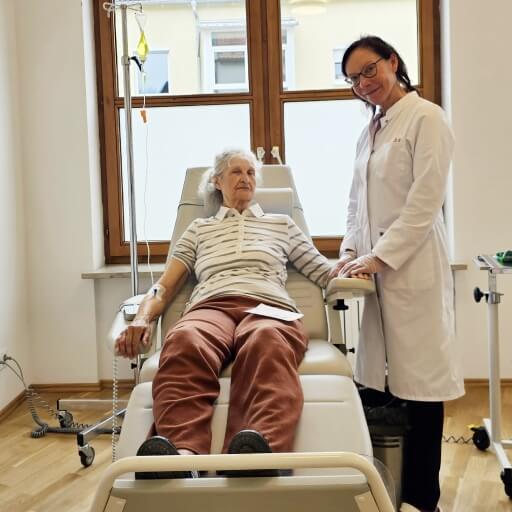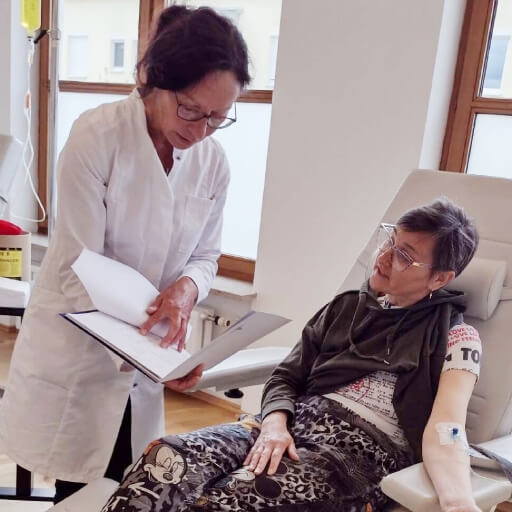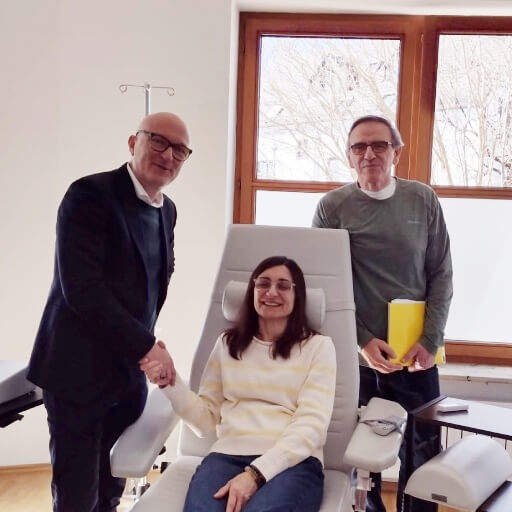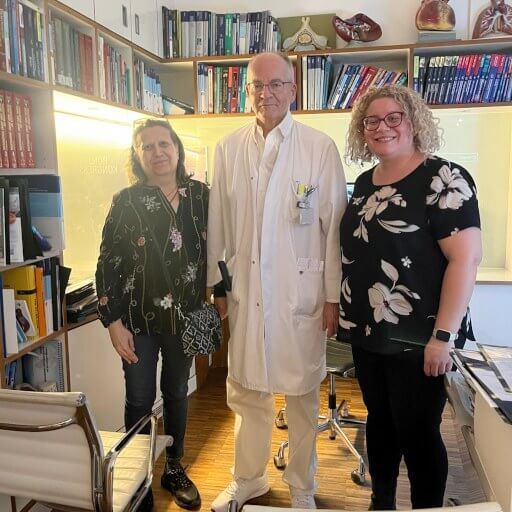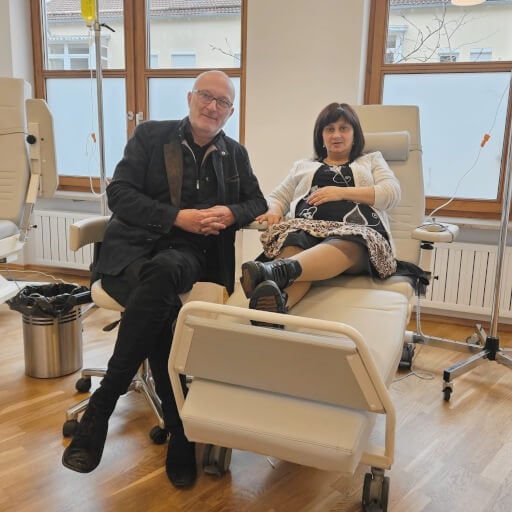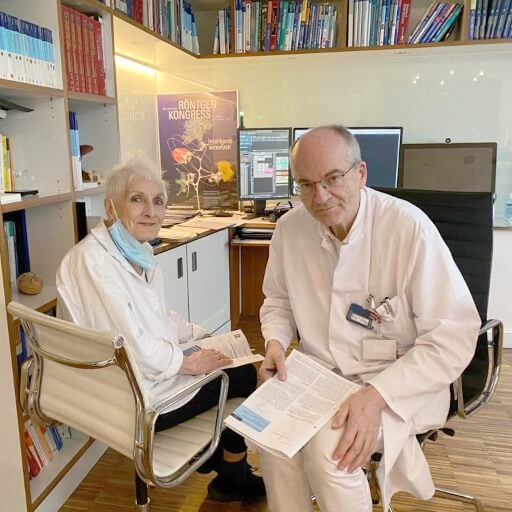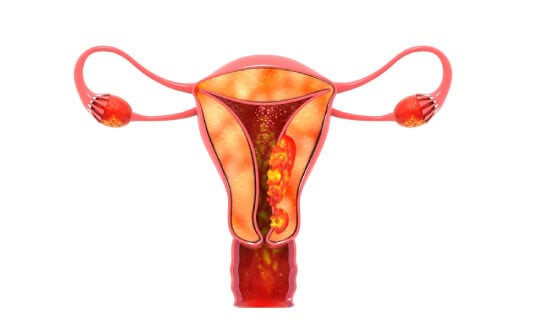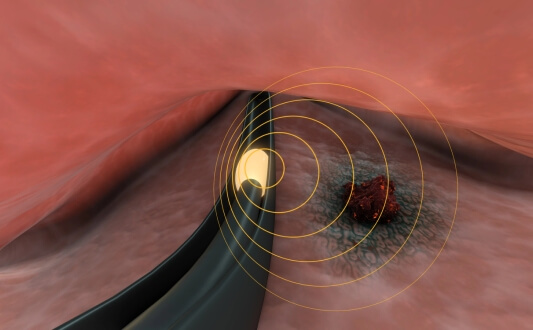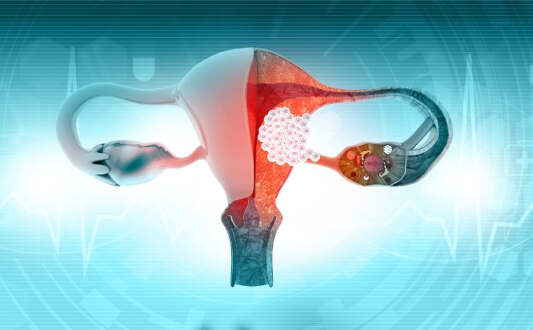Рак матки является одним из наиболее распространенных видов рака у женщин во всем мире: в 2020 году было зарегистрировано более 417 000 новых случаев заболевания и почти 97 000 смертей [1]. Общие статистические данные указывают на серьезные проблемы в области борьбы с раком матки, однако Германия выделяется среди других стран мира не только развитой медицинской инфраструктурой, но и возрастающей ролью передовых малоинвазивных и таргетных методов лечения.
Например, минимально инвазивная и роботизированная лапароскопическая хирургия стала стандартом лечения рака эндометрия в Германии. Применение такого подхода в клинической практике обеспечивает лучшие результаты лечения по сравнению с традиционными открытыми вмешательствами. Кроме того, врачи в немецких клиниках все чаще используют инновационные виды лучевой терапии и современные таргетные или иммунотерапевтические препараты, причем даже на поздних стадиях рака, что обеспечивает беспрепятственный доступ к инновационным методикам лечения.
Почему стоит пройти лечение рака матки в Германии
Германия занимает лидирующие позиции в мире в области лечения рака, ежегодно привлекая тысячи иностранных пациентов. Для женщин, желающих получить современное лечение рака матки, в этой стране предлагается уникальное сочетание инновационной медицинской инфраструктуры, строгих стандартов качества и пациент-ориентированного подхода.
Это особенно важно для пациенток с раком эндометрия, при котором раннее выявление онкопроцесса и индивидуальный подбор методов лечения могут значительно улучшить показатели выживаемости и качество жизни. Многие ведущие клиники предоставляют комплексную медицинскую помощь «под одной крышей», которая органично сочетает в себе диагностику, хирургию и адъювантную терапию.
Инновационные медицинские технологии
Для обеспечения пациентам современного лечения в Германии здесь регулярно инвестируют денежные средства в передовое оборудование и инновационные технологии – от МРТ и ПЭТ-КТ высокого разрешения до роботизированных хирургических систем. Все эти инструменты позволяют проводить операции по удалению опухолей с более высокой степенью точности и способствуют скорейшему восстановлению пациентов после вмешательства. Доступность таких технологий имеет особенно важное значение для пациенток с раком эндометрия, ведь малоинвазивные вмешательства позволяют снизить риск осложнений, а также сохранить репродуктивное и гормональное здоровье женщины, когда это возможно.
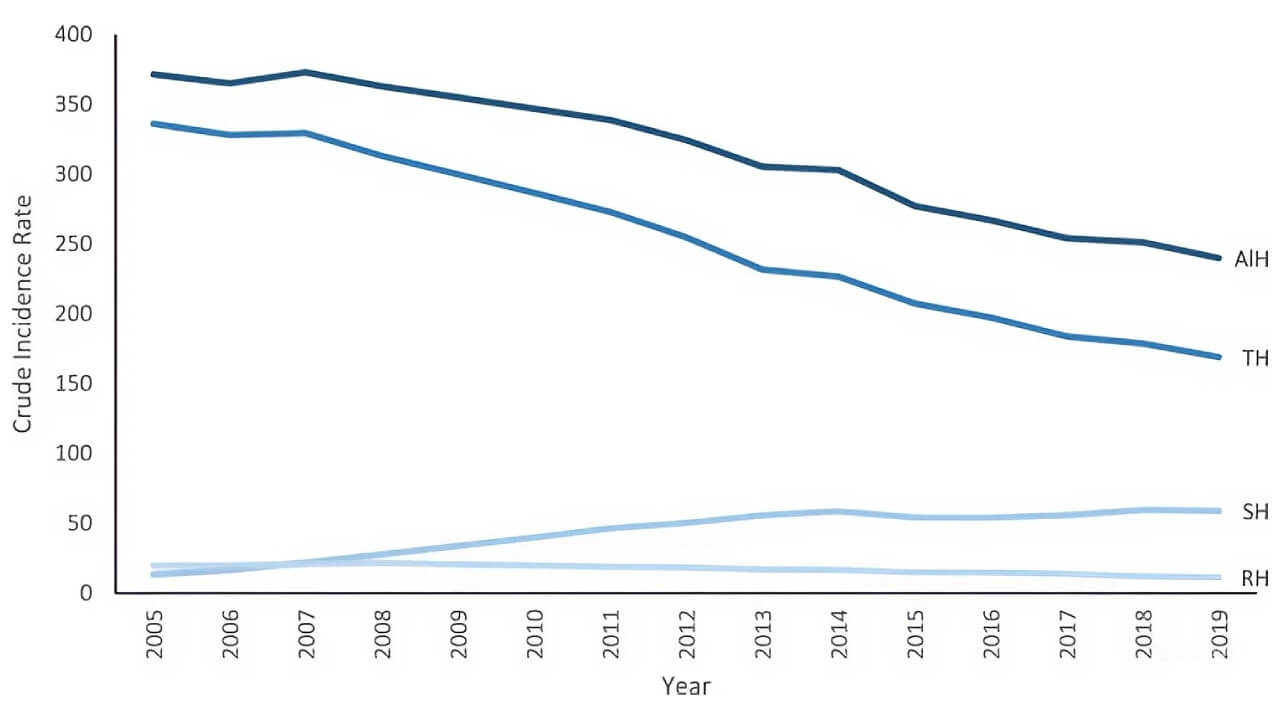
Специализированные онкологические центры
Сертифицированные центры гинекологической онкологии по всей Германии работают в соответствии со строгими рекомендациями Немецкого онкологического общества. Такие медучреждения специализируются исключительно на сложных случаях рака, предлагая междисциплинарный экспертный опыт в области хирургии, лучевой терапии и медицинской онкологии. Они применяют в своей клинической практике комплексный подход, что гарантирует составление для каждой пациентки персонализированной схемы лечения рака матки с включением в нее методов с научно доказанной эффективностью.
Доступ к инновационным видам терапии
Помимо лечения в соответствии с установленными протоколами, многие клиники в Германии предлагают терапию в рамках клинических испытаний, предоставляя пациентам доступ к новейшим таргетным препаратам и передовым формам иммунотерапии. Это способствует не только эффективности лечения рака в Германии, но и его перспективности, поскольку перед пациентами открывается возможность воспользоваться передовыми медицинскими достижениями за несколько лет до того, как они станут широко доступными в других странах.
Современные методы лечения в Германии
Хирургия по-прежнему является основным методом лечения рака матки. В Германии операции проводятся с особым акцентом на точность, безопасность и быстрое восстановление пациенток. Стандартным вмешательством при большинстве случаев рака эндометрия является тотальная гистерэктомия (операция по удалению матки), часто в сочетании с двусторонней сальпингоофорэктомией (операцией по удалению обоих яичников и фаллопиевых труб) для снижения риска рецидива.
Германия демонстрирует прекрасные результаты в области малоинвазивной хирургии, в частности лапароскопии и роботизированной хирургии. Применение этих передовых хирургических техник предполагает выполнение лишь небольших разрезов, способствует снижению кровопотери, минимизирует риск инфекционных поражений и позволяет пациентам быстрее вернуться к привычной повседневной жизни. Исследования показали, что проведение малоинвазивной гистерэктомии в профильных немецких онкологических центрах обеспечивает сопоставимый с открытой хирургией контроль над раком, при этом способствуя значительному сокращению сроков восстановления пациенток в послеоперационном периоде.
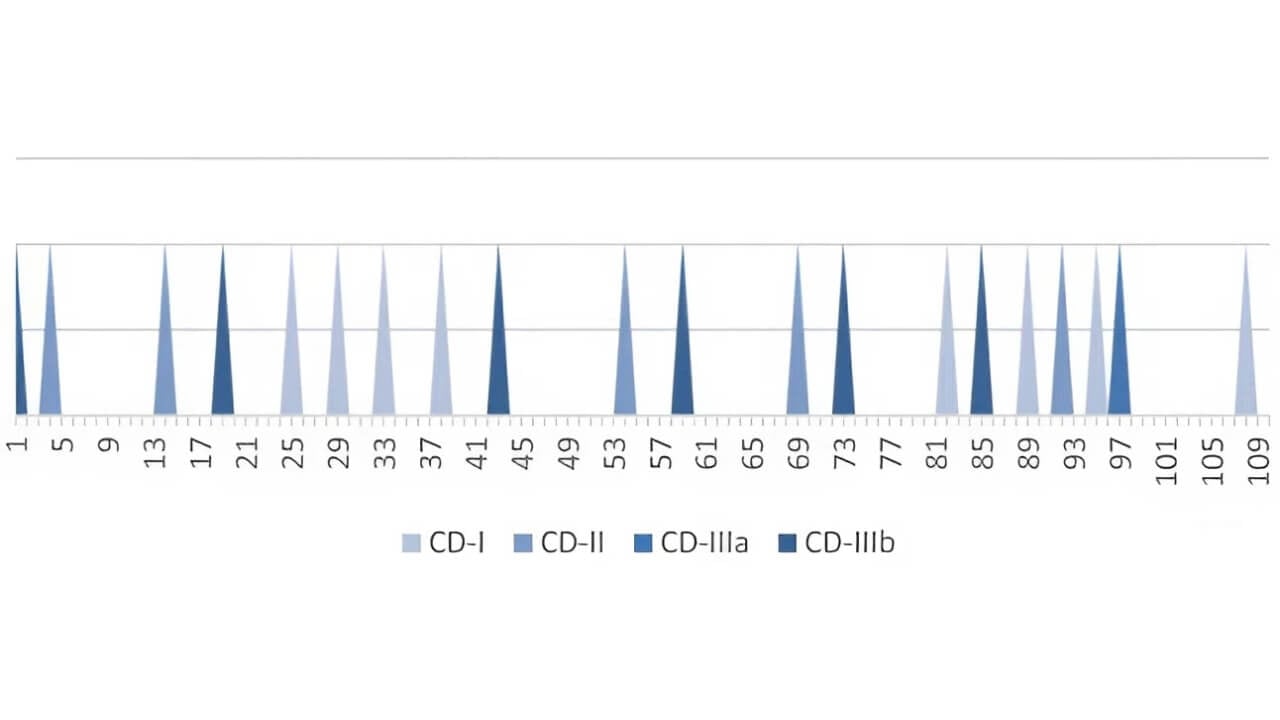
На более поздних стадиях рака эндометрия хирурги часто прибегают к проведению систематической лимфаденэктомии – операции по удалению тазовых и парааортальных лимфатических узлов для выявления или исключения признаков распространения рака. Это не только помогает врачам точно определить стадию заболевания, но и дает им возможность оценить целесообразность проведения дополнительных методов лечения, например, облучения или химиотерапии.
Высокоточная лучевая терапия и брахитерапия
Во многих случаях в Германии проводится высокоточная дистанционная лучевая терапия (ДЛТ) для уничтожения раковых клеток при сохранении здоровых тканей. Брахитерапия, при которой радиоактивный источник размещается внутри или вблизи опухоли, также является стандартным методом лечения, особенно при локализованном раке матки. Такая форма облучения способствует снижении частоты рецидивов с обеспечением минимального профиля системных побочных эффектов.
Системная химиотерапия
На поздних стадиях онкопроцесса или при его распространении за пределы матки важной составляющей лечения рака в Германии становится химиотерапия. В немецких онкологических центрах используются современные комбинации лекарственных препаратов, позволяющие добиться максимального контроля над опухолью при одновременной минимизации побочных эффектов, часто в комплексе с другими терапевтическими методиками для обеспечения более комплексного лечения.
Гормональная и таргетная терапия
Для пациенток с раком эндометрия, особенно с гормонозависимыми опухолями, одним из важнейших вариантов лечения является гормональная терапия. За счет модуляции гормонов, стимулирующих рост опухоли, данный вид терапия помогает замедлить или даже остановить прогрессирование рака. Большинство врачей в Германии тщательно оценивают рецепторный статус опухоли, чтобы определить, подходит ли гормональное лечение пациентке – это обеспечивает персонализированный подход к каждому клиническому случаю эндометриального рака.
Наряду с гормональной терапией, в немецких клиниках предлагаются передовые виды таргетной терапии, направленные на уничтожение клеток рака эндометрия со специфическим генетическим профилем. Такие методы таргтеной терапии дают новую надежду пациенткам с эндометриальным раком, которым не подходят более агрессивные варианты лечения, в частности обширная операция или химиотерапия. Комбинированное лечение рака матки гормональной терапией и таргетными препаратами помогает врачам улучшить результаты при минимизации побочных действий.
В целом, широкий спектр предлагаемых в Германии вариантов гормональной и таргетной терапии предоставляет пациенткам множество эффективных возможностей для лечения эндометриального рака с сохранением достойного качества жизни.
Инновационная иммунотерапия
В некоторых немецких онкологических центрах предлагается иммунотерапия, направленная на укрепление защитных механизмов собственной иммунной системы пациентки для борьбы с заболеванием. На сегодняшний день этот вариант терапии чаще применяется на поздних стадиях рака эндометрия или при рецидивах онкопатологии, однако он демонстрирует большой потенциал Германии в области внедрения в клиническую практику передовых методов лечения рака матки.
Лечение рака матки 4 стадии
Для успешной борьбы с раком матки 4 стадии требуется тщательно разработанная тактика лечения. В Германии онкологи отдают предпочтение междисциплинарному подходу, сочетающему хирургию, системную терапию и инновационные варианты локального лечения. Такой комплекс лечебных мероприятий позволяет контролировать рост опухоли, облегчить симптоматику и увеличить продолжительность жизни. Скоординированный подход к лечению направлен борьбу с эндометриальным раком на разных уровнях, что обеспечивает замедление прогрессирования заболевания при сохранении достойного качества жизни.
HIPEC – внутрибрюшинная химиотерапия
При метастатическом поражении брюшины на фоне рака матки проводится процедура HIPEC, суть которой состоит во введении нагретого раствора химиопрепаратов непосредственно в брюшную полость сразу после удаления опухоли. Во время HIPEC нагретый раствор химиопрепаратов циркулирует по всей брюшной полости, что позволяет врачам более эффективно воздействовать на остаточные опухолевые клетки. Нагревание раствора лекарств до 41-43°C при проведении HIPEC способствует их лучшему проникновению и усиливает их цитотоксическое действие на оставшиеся раковые клетки.
Процедура HIPEC зарекомендовала себя как эффективный и надежный метод лечения рака: команды онкологов в клиниках Германии проводят такое лечение на регулярной основе. Сочетание хирургии с HIPEC позволяет врачам добиться лучшего локального контроля над заболеванием и улучшить результаты лечения пациенток. Повсеместное применение метода HIPEC в специализированных центрах свидетельствует о его важной роли в лечении поздних стадий рака матки.
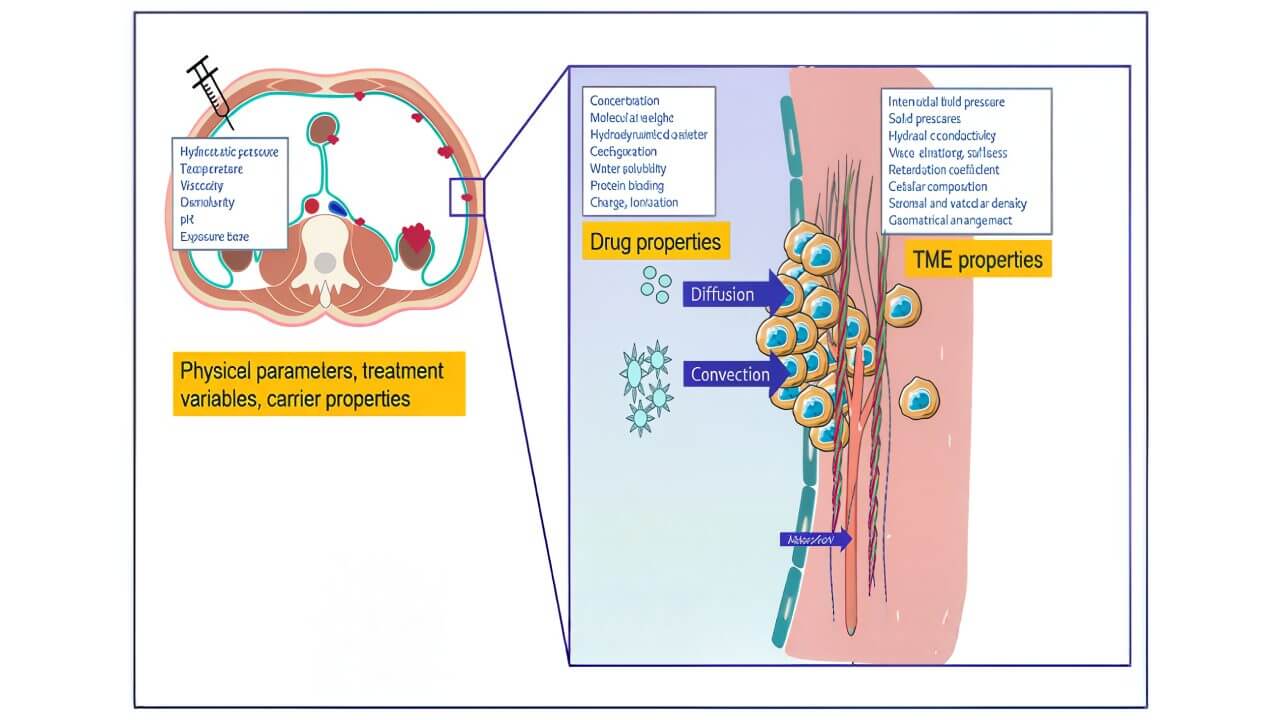
TACE – таргетная трансартериальная химиоэмболизация
Трансартериальная химиоэмболизация (TACE) – широко используемая в Германии процедура для лечения метастазов рака эндометрия в печени и других органах с артериальным кровоснабжением. В ходе химиоэмболизации в питающую опухоль артерию вводится катетер, после чего через него непосредственно к раковым клеткам доставляется концентрированная доза химиотерапевтических препаратов. Сразу после этого проводится эмболизация артерии микрочастицами, которые блокируют кровоток, обеспечивая эффективное удержание химиопрепаратов внутри опухоли.
Двойной механизм действия химиоэмболизации одновременно лишает опухоль питательных веществ и обеспечивает максимально высокую концентрацию препаратов непосредственно в онкологическом очаге. В результате достигается уменьшение размеров опухоли и длительный контроль над заболеванием с меньшим количеством системных побочных эффектов.
Терапия дендритными клетками – активация защитных сил иммунной системы
Терапия дендритными клетками – эффективная форма иммунотерапии, которая напрямую «обучает» собственную иммунную систему пациента распознавать раковые клетки и уничтожать их. Дендритные клетки действуют как «командиры» иммунитета организма: они захватывают и обрабатывают опухолевые антигены, а затем представляют их Т-лимфоцитам, запуская высокоспецифичную и агрессивную атаку на злокачественные клетки.
Дендритные клетки получают из крови пациента. В специализированной лаборатории их подвергают воздействию опухоль-ассоциированных антигенов, по сути «обучая» их распознавать рак. После повторного введения этих «обученных» клеток пациенту они перемещаются по организму, активируя цитотоксические Т-клетки и естественные клетки-киллеры (NK-клетки), которые затем приобретают способность самостоятельно распознавать и уничтожать раковые клетки в различных анатомических структурах.
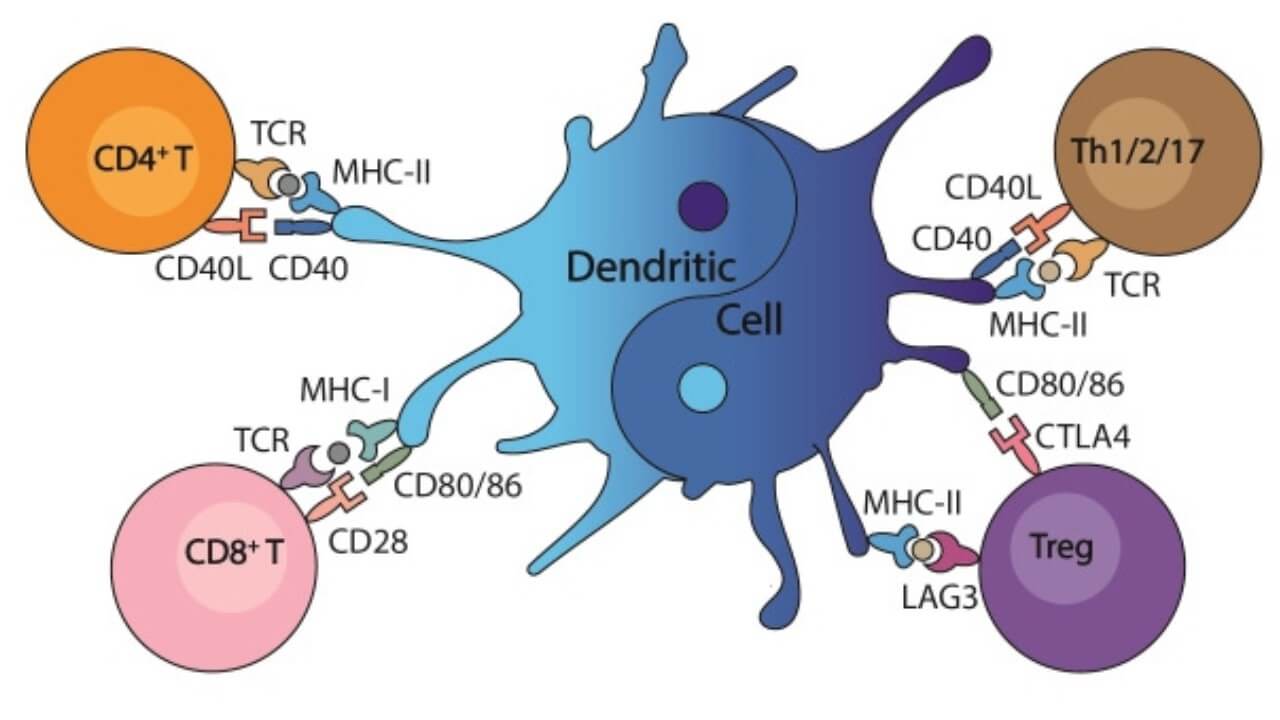
Подобная таргетная активация иммунной системы не только обеспечивает уничтожение существующих опухолей, но и способствует формированию долговременной иммунной памяти, потенциально снижая риск развития рецидива рака.
За открытие дендритных клеток и их ключевой роли в регуляции иммунитета Ральфу Штейнману в 2011 году была присуждена Нобелевская премия по физиологии и медицине. Сегодня этот вид терапии успешно проводится врачами в немецких онкологических центрах для лечения поздних стадий рака эндометрия, обеспечивая долгосрочные результаты и лучший исход лечения пациенток.
Гипертермия – уничтожение рака тепловой энергией
Метод гипертермия основан на нагревании опухолевой ткани для ослабления раковых клеток и повышения их чувствительности к химиотерапии и лучевой терапии. В ведущих немецких онкологических клиниках этот метод отличается высокой точностью и обеспечивает максимально эффективное воздействие на опухоли при защите здоровых тканей, что часто позволяет достигать лучших результатов лечения и увеличения продолжительности жизни пациентов.
| Вид терапии | Показатели 2-летней выживаемости | Показатели ответа на лечение | Продолжительность курса лечения | Побочные эффекты |
|---|---|---|---|---|
| Стандартные методы лечения | ~55-70% на ранних стадиях рака ~30% на поздних стадиях рака | ~40-60% | От нескольких недель до нескольких месяцев | Умеренные и тяжелые побочные эффекты (повышенная утомляемость,тошнота, бесплодие, нарушения в работе кишечника/мочевого пузыря) |
| Инновационные методы лечения | ~60-75% в отдельных случаях при прогрессирующем/рефрактерном раке | 45-65% | Возможно проведение нескольких сеансов лечения | Незначительные побочные эффекты (лихорадка, локализованный воспалительный процесс, гриппоподобные симптомы) |
Поддержка Booking Health
Поиск подходящей клиники для лечения рака матки может оказаться непростой задачей. Booking Health предоставляет четкую и достоверную информацию о клиниках в Германии, в частности об их направлениях специализации, технологиях и показателях успешности лечения, чтобы женщины могли принимать обоснованные решения на основе конкретных фактов, а не догадок.
Для получения медицинской визы необходимо собрать обширный пакет документов и успеть сделать это в срок. При поддержке Booking Health пациентка получает подробные инструкции о том, какие документы необходимы для получения визы и как их подготовить, а также специалисты компании предоставляю помощь в коммуникации с посольством, чтобы избежать типичных задержек или недоразумений.
Чаще всего перед отправкой медицинских заключений пациентки в клинику для рассмотрения ее клинического случая необходимо их перевести на немецкий язык и систематизировать. Надлежащее оформление документации обеспечивает скорейшую запись на прием в клинику и более простой процесс планирования лечения.
Главная цель сотрудников Booking Health – взять на себя решение всех этих логистических проблем, чтобы пациентка могла полностью сосредоточиться на своем здоровье и лечении без лишнего стресса.
| Стоимость лечения | Стандартные методы | Инновационные методы |
|---|---|---|
| Стоимость лечения в Германии | $25,000 – $280,000 за полный курс | $6,500 – $75,000 за полный курс |
| Стоимость лечения в Великобритании | $26,000 – $320,000 за полный курс | $25,000 – $118,000 за полный курс |
| Стоимость лечения в США | $100,000 – $350,000 за полный курс | $40,000 – $150,000 за полный курс |
Поездка на лечение за границу с Booking Health
Самостоятельный поиск наилучшей тактики лечения с учетом вашей индивидуальной клинической ситуации – довольно сложная задача. Испытав на себе многочисленные курсы лечения, проконсультировавшись со множеством специалистов и испробовав различные терапевтические процедуры, вам может быть трудно сориентироваться во всей предоставленной врачами информации. В таком случае пациенты зачастую выбирают первый же предложенный вариант лечения или соглашаются на лечение с применением стандартизированных терапевтических протоколов, которое повлечет за собой множество побочных эффектов, вместо того, чтобы рассмотреть возможность терапии с помощью инновационных процедур.
Если вы хотите сделать осознанный выбор и получить лечение рака в соответствии с индивидуально разработанной для вас схемой с учетом особенностей вашей конкретной клинической ситуации, проконсультируйтесь с врачами-консультантами Booking Health. Компания Booking Health уже более 12 лет занимает ведущие позиции в сфере организации лечения за рубежом с применением новейших инноваций в медицине, поэтому ее специалисты обладают огромным опытом в составлении персонализированных комплексных программ лечения для каждого пациента. Booking Health пользуется репутацией авторитетной компании, которая предоставляет персонализированный подбор схемы лечения рака матки и клиники с прямым бронированием приема в медицинском центре и полной поддержкой на каждом этапе лечения – от решения организационных вопросов до помощи в процессе лечения. Мы предлагаем:
- Оценку и анализ медицинских заключений пациентки
- Составление индивидуальной программы лечения
- Подбор подходящего медицинского учреждения для лечения
- Подготовку медицинской документации и ее направление в выбранную пациенткой для лечения клинику
- Консультации с врачами зарубежной клиники для разработки оптимальной медицинской программы на этапе подготовки к поездке на лечение
- Экспертные консультации во время пребывания в больнице
- Последующее консультирование пациентки после ее возвращения на родину по завершении медицинской программы
- Решение организационных вопросов в рамках подготовки к поездке на лечение за границу
- Координацию и организацию пребывания пациентки в другой стране
- Помощь в оформлении визы и бронировании авиабилетов
- Услуги переводчика и персонального координатора, который будет с вами на связи 24/7
- Прозрачные цены на лечение без скрытых платежей
Здоровье – главная ценность в жизни каждого человека, доверять заботу о которой стоит лишь лучшим специалистам с богатым опытом и проверенной репутацией. Booking Health – это ваш надежный партнер, который оказывает всестороннюю помощь на пути к восстановлению здоровья и улучшению качества жизни. Свяжитесь с медицинским консультантом компании, чтобы узнать больше о возможностях персонализированного лечения рака матки у ведущих экспертов с использованием инновационных методов.
Современная онкология: опыт пациентов Booking Health
Частые вопросы о лечении рака матки в Германии
Отправить запрос на лечениеВ Германии предлагается широкий спектр передовых вариантов лечения рака матки: хирургия, лучевая терапия, химиотерапия и инновационные лечебные процедуры. Хорошие результаты лечения наблюдаются у многих пациенток, которые проходят малоинвазивную гистерэктомию в Германии, персонализированную таргетную терапию и иммунотерапию. В ведущих немецких онкологических клиниках для каждой женщины разрабатывается индивидуальная схема лечения с целью обеспечения наилучших результатов.
Стоимость лечения рака матки в Германии различается в зависимости от стадии онкопроцесса и выбранных методов лечения. Благодаря возможности сравнения стоимости лечения в ведущих клиниках пациентки могут выбрать варианты с конкурентоспособными ценами на хирургию, лучевую терапию и системное лечение.
Онкологическая статистика в Германии показывает, что показатели общей выживаемости при раке матки в Германии являются одними из самых высоких в мире, особенно при проведении лечения на ранних стадиях заболевания. Благодаря сочетанию услуг опытных специалистов и доступа к инновационным методам лечения в специализированных онкологических центрах Германии достигаются стабильно высокие долгосрочные результаты лечения.
Лучшую клинику для рака матки можно найти среди сети сертифицированных онкологических центров Германии, известных своим междисциплинарным подходом к лечению и передовыми технологиями. Пациентки часто выбирают лучшие клиники в крупных городах, таких как Берлин, Мюнхен и Гамбург, которые завоевали международное признание за превосходный уровень медицинского обслуживания в области гинекологической онкологии.
Могут ли иностранные пациентки получить лечение рака матки в рамках клинических исследований в Германии?
Да, во многих немецких онкологических клиниках предлагается лечение рака матки в рамках клиническим исследований в Германии, благодаря чему пациенткам предоставляется возможность получить лечение с применением передовых методов. Благодаря упрощенной системе доступа к медицинскому туризму и услугам поддержки, иностранные пациентки могут пройти терапию в рамках передовых исследований, получая при этом квалифицированную медицинскую помощь.
Выбирайте лечение за рубежом и Вы, несомненно, получите отличный результат!
Авторы:
Статья составлена под редакцией экспертов в области медицины, врачей-специалистов доктора Надежды Иванисовой и доктора Богдана Михальнюка. Для лечения состояний, о которых идет речь в статье, необходимо обратиться к врачу; информация в статье не предназначена для самолечения!
С редакционной политикой, которая отражает наше стремление к точности и прозрачности, можно ознакомиться здесь. Перейдите по ссылке, чтобы ознакомиться с нашими правилами.
Источники:
[1] International Gynecologic Cancer Society. Uterine Cancer. https://igcs.org/uterine/
[2] Gifty Baffour Awuah, Gunther Schauberger, Stefanie J Klug, Luana Fiengo Tanaka. An age-period-cohort analysis of hysterectomy incidence trends in Germany from 2005 to 2019. Sci Rep . 2024 Jul 2;14(1):15110. doi: 10.1038/s41598-024-66019-8. eCollection 2024 Jan. [DOI] [PubMed]
[3] Dimitrios Balafoutas, Achim Wöckel, Christine Wulff, Ralf Joukhadar. Implementation of robotic gynecological surgery in a German University Hospital: patient safety after 110 procedures. Arch Gynecol Obstet. 2020 Dec;302(6):1381-1388. doi: 10.1007/s00404-020-05751-8. Epub 2020 Aug 25. [DOI] [PubMed]
[4] Wim Ceelen, Jesse Demuytere, Ignace de Hingh. Hyperthermic Intraperitoneal Chemotherapy: A Critical Review. Cancers (Basel). 2021 Jun 22;13(13):3114. doi: 10.3390/cancers13133114. [DOI] [PubMed]
[5] Carlos Jiménez-Cortegana, Francisca Palomares, Gonzalo Alba et al. Dendritic cells: the yin and yang in disease progression. Front Immunol. 2024 Jan 4:14:1321051. doi: 10.3389/fimmu.2023.1321051. eCollection 2023. [DOI] [PubMed]
Читайте:
Методы лечения рака матки (эндометрия)

